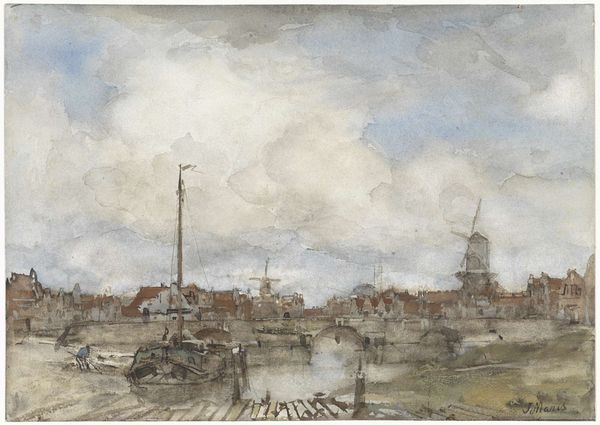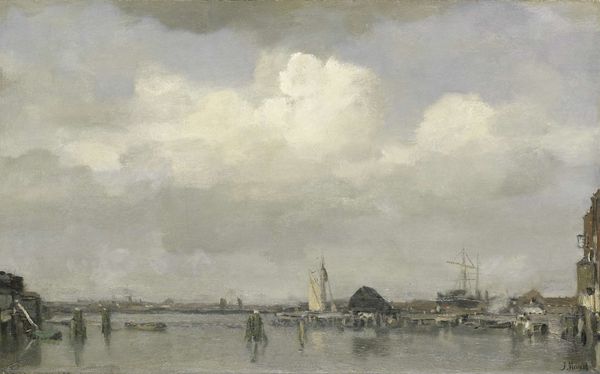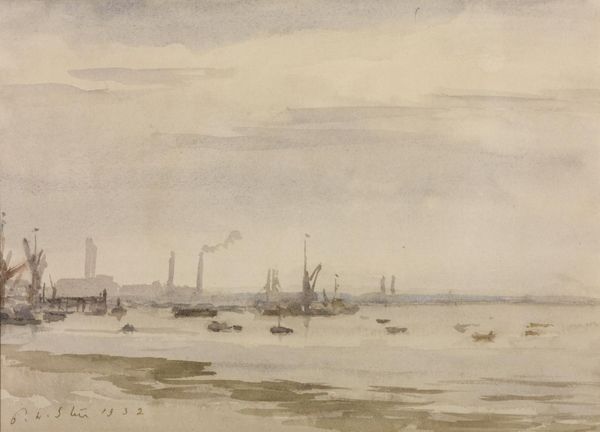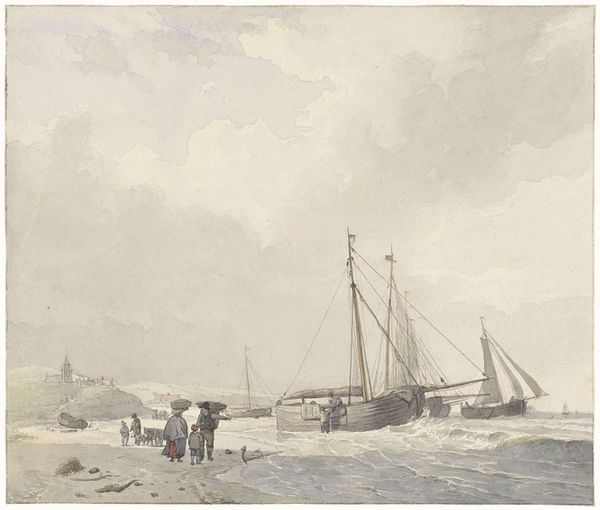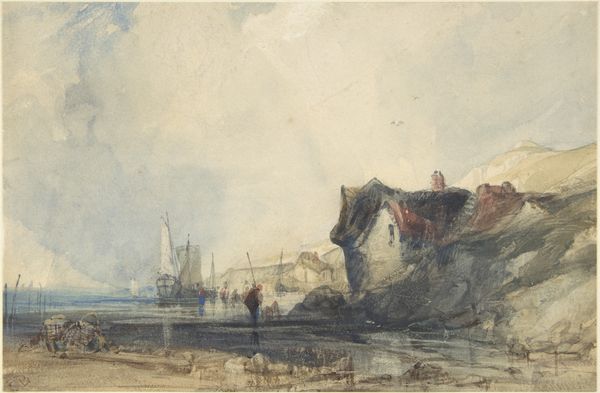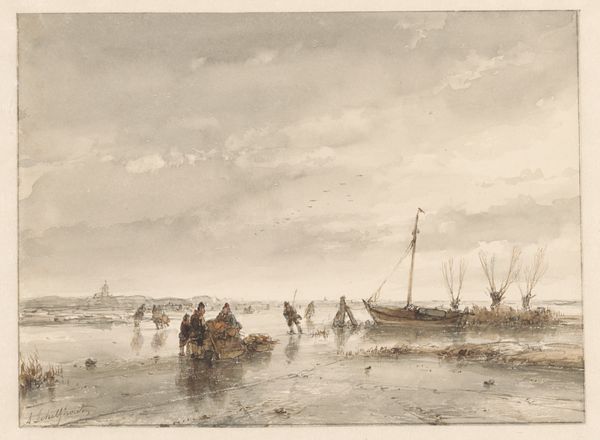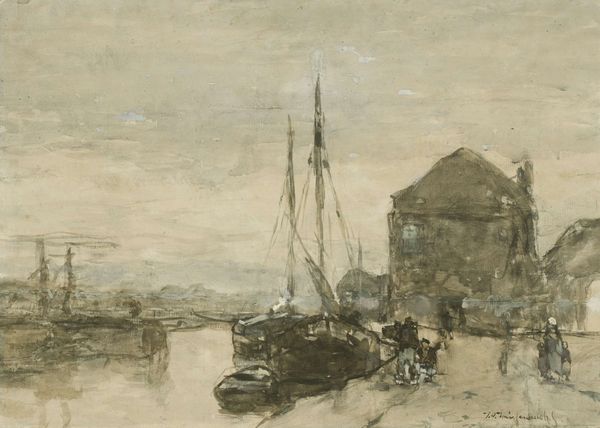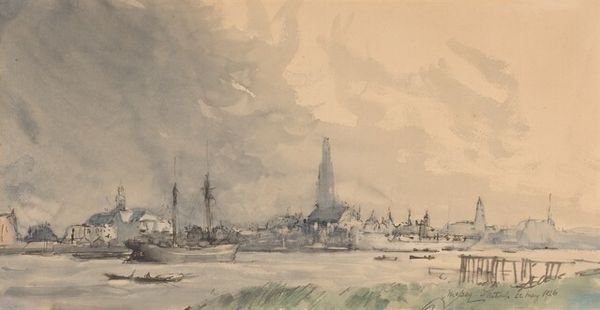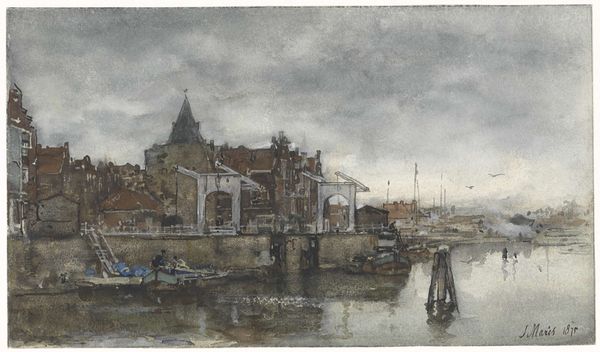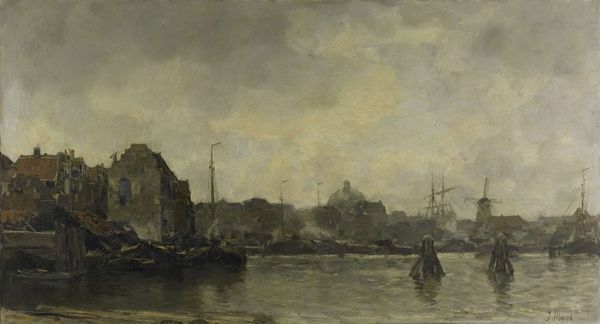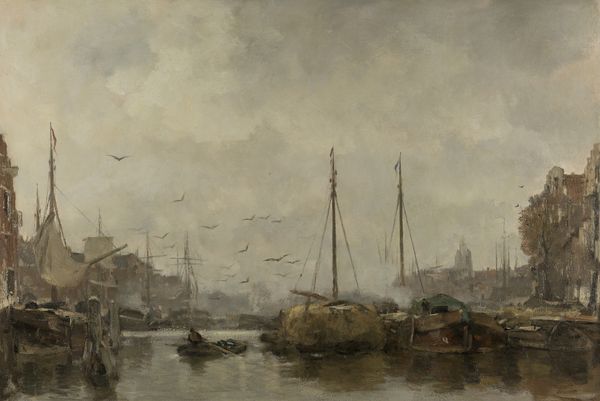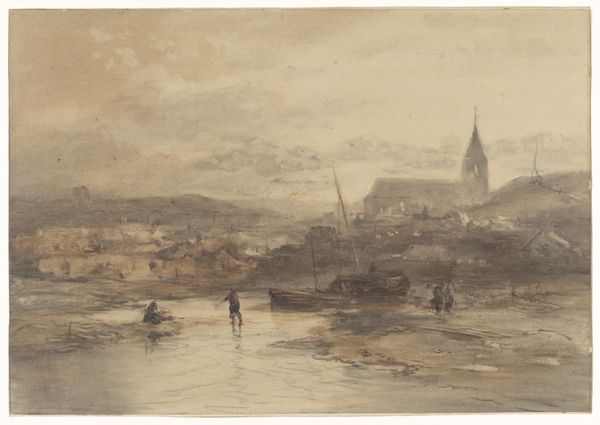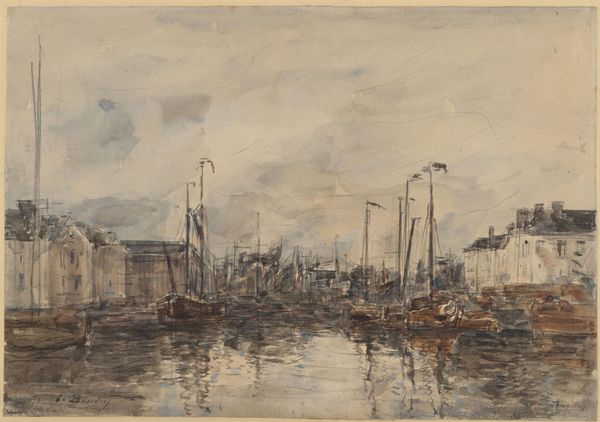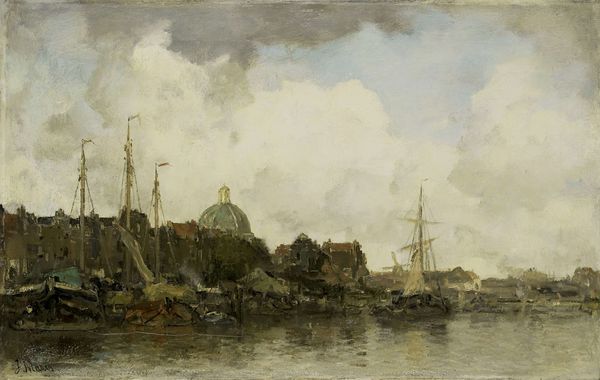
watercolor
#
dutch-golden-age
#
impressionism
#
landscape
#
charcoal drawing
#
watercolor
#
cityscape
#
watercolor
#
realism
Dimensions: height 620 mm, width 855 mm
Copyright: Rijks Museum: Open Domain
Editor: This is "Gezicht op een stad," or "View of a City," by Jacob Maris, painted in 1882. It's a watercolor piece, and it gives me such a feeling of quiet, almost melancholic stillness. All those greys... What do you see in it? Curator: I see a potent commentary on the changing landscape of the Netherlands in the late 19th century. Maris captures a moment of industrial transformation. Note the subdued palette; it’s not simply about aesthetic choice, but reflects a period of intense societal change, especially in urban centers. Editor: Subdued, yes, but what about those touches of light struggling through? Curator: Exactly! The light and shadow play speaks volumes about hope amidst the grit. Maris often engaged with themes of labor and the plight of working-class individuals. This wasn't detached observation, but social critique. Do you notice how the composition centers the ordinary activities along the docks rather than the grand architecture? Editor: I see what you mean. It's not about glorifying the city but showing its life, the everyday struggles... almost like a silent protest. Curator: Precisely. The misty atmosphere, achieved with the watercolor technique, could symbolize the uncertainty and obscurity faced by those navigating rapid industrialization. It's about reclaiming narratives, placing the common person at the heart of the artwork. How does understanding that shift your initial feeling of melancholic stillness? Editor: It definitely adds layers. Knowing Maris aimed to highlight the common person makes that quietness seem more deliberate, a statement of their existence and value. Curator: Exactly, art becomes a platform, not just a picture. Editor: I hadn't considered the political implications before, focusing only on the atmosphere. Curator: That's the power of art history—to challenge our initial perceptions. We find that even seemingly simple landscapes can echo complex realities.
Comments
No comments
Be the first to comment and join the conversation on the ultimate creative platform.
